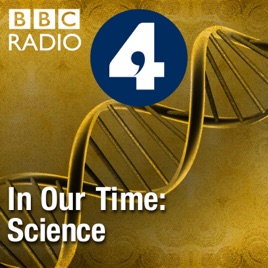
Advertise on podcast: In Our Time: Science
Rating
4.6 from
Categories
Country
This podcast has
280 episodes
Language
Publisher
Explicit
No
Date created
2011/09/07
Average duration
52 min.
Release period
50 days
Description
Scientific principles, theory, and the role of key figures in the advancement of science.
Podcast episodes
Check latest episodes from In Our Time: Science podcast
Plankton
2023/11/02
Melvyn Bragg and guests discuss the tiny drifting organisms in the oceans that sustain the food chain for all the lifeforms in the water and so for the billions of people who, in turn, depend on the seas for their diet. In Earth's development, the plant-like ones among them, the phytoplankton, produced so much oxygen through photosynthesis that around half the oxygen we breathe today originated there. And each day as the sun rises, the animal ones, the zooplankton, sink to the depths of the seas to avoid predators in such density that they appear on ship sonars like a new seabed, only to rise again at night in the largest migration of life on this planet.
With
Carol Robinson
Professor of Marine Sciences at the University of East Anglia
Abigail McQuatters-Gollop
Associate Professor of Marine Conservation at the University of Plymouth
And
Christopher Lowe
Lecturer in Marine Biology at Swansea University
Producer: Simon Tillotson
Reading list:
Juli Berwald, Spineless: The Science of Jellyfish and the Art of Growing a Backbone (Riverhead Books, 2018)
Sir Alister Hardy, The Open Sea: The World of Plankton (first published 1959; Collins New Naturalist Library, 2009)
Richard Kirby, Ocean Drifters: A Secret World Beneath the Waves (Studio Cactus Ltd, 2010)
Robert Kunzig, Mapping the Deep: The Extraordinary Story of Ocean Science (Sort Of Books, 2000)
Christian Sardet, Plankton: Wonders of the Drifting World (University of Chicago Press, 2015)
Helen Scales, The Brilliant Abyss: True Tales of Exploring the Deep Sea, Discovering Hidden Life and Selling the Seabed (Bloomsbury Sigma, 2022)
more
Albert Einstein
2023/10/12
Melvyn Bragg and guests discuss the man who, in 1905, produced several papers that were to change the world of physics and whose name went on to become a byword for genius. This was Albert Einstein, then still a technical expert at a Swiss patent office, and that year of 1905 became known as his annus mirabilis ('miraculous year'). While Einstein came from outside the academic world, some such as Max Planck championed his theory of special relativity, his principle of mass-energy equivalence that followed, and his explanations of Brownian Motion and the photoelectric effect. Yet it was not until 1919, when a solar eclipse proved his theory that gravity would bend light, that Einstein became an international celebrity and developed into an almost mythical figure.
With
Richard Staley
Professor in History and Philosophy of Science at the University of Cambridge and Professor in History of Science at the University of Copenhagen
Diana Kormos Buchwald
Robert M. Abbey Professor of History and Director and General Editor of The Einstein Papers Project at the California Institute of Technology
And
John Heilbron
Professor Emeritus at the University of California, Berkeley
Producer: Simon Tillotson
Reading list:
Ronald W. Clark, Einstein: The Life and Times (first published 1971; HarperPaperbacks, 2011)
Albert Einstein (eds. Jurgen Renn and Hanoch Gutfreund), Relativity: The Special and the General Theory - 100th Anniversary Edition (Princeton University Press, 2019)
Albert Einstein, Out of My Later Years (first published 1950; Citadel Press, 1974)
Albert Einstein (ed. Paul A. Schilpp), Albert Einstein: Philosopher-Scientist: The Library of Living Philosophers Volume VII (first published 1949; Open Court, 1970)
Albert Einstein (eds. Otto Nathan and Heinz Norden), Einstein on Peace (first published 1981; Literary Licensing, 2011)
Albrecht Folsing, Albert Einstein: A Biography (Viking, 1997)
J. L. Heilbron, Niels Bohr: A Very Short Introduction (Oxford University Press, 2020)
Walter Isaacson, Einstein: His Life and Universe (Simon & Schuster, 2008)
Max Jammer, Einstein and Religion (Princeton University Press, 2002)
Michel Janssen and Christoph Lehner (eds.), The Cambridge Companion to Einstein (Cambridge University Press, 2014)
Dennis Overbye, Einstein in Love: A Scientific Romance (Viking, 2000)
Abraham Pais, Subtle Is the Lord: The Science and the Life of Albert Einstein (Oxford University Press, 1982)
David E. Rowe and Robert Schulmann (eds.), Einstein on Politics: His Private Thoughts and Public Stands on Nationalism, Zionism, War, Peace, and the Bomb (Princeton University Press, 2007)
Matthew Stanley, Einstein's War: How Relativity Triumphed Amid the Vicious Nationalism of World War I (Dutton, 2019)
Fritz Stern, Einstein’s German World (Princeton University Press, 1999)
A. Douglas Stone, Einstein and the Quantum: The Quest of the Valiant Swabian (Princeton University Press, 2013)
Milena Wazeck (trans. Geoffrey S. Koby), Einstein's Opponents: The Public Controversy About the Theory of Relativity in the 1920s (Cambridge University Press, 2014)
more
Mitochondria
2023/06/29
Melvyn Bragg and guests discuss the power-packs within cells in all complex life on Earth.
Inside each cell of every complex organism there are structures known as mitochondria. The 19th century scientists who first observed them thought they were bacteria which had somehow invaded the cells they were studying. We now understand that mitochondria take components from the food we eat and convert them into energy.
Mitochondria are essential for complex life, but as the components that run our metabolisms they can also be responsible for a range of diseases – and they probably play a role in how we age. The DNA in mitochondria is only passed down the maternal line. This means it can be used to trace population movements deep into human history, even back to an ancestor we all share: mitochondrial Eve.
With
Mike Murphy
Professor of Mitochondrial Redox Biology at the University of Cambridge
Florencia Camus
NERC Independent Research Fellow at University College London
and
Nick Lane
Professor of Evolutionary Biochemistry at University College London
Producer Luke Mulhall
more
Linnaeus
2023/05/18
Melvyn Bragg and guests discuss the life, ideas and legacy of the pioneering Swedish botanist Carl Linnaeus (1707 – 1778). The philosopher Jean-Jacques Rousseau once wrote: "Tell him I know no greater man on earth".
The son of a parson, Linnaeus grew up in an impoverished part of Sweden but managed to gain a place at university. He went on to transform biology by making two major innovations. He devised a simpler method of naming species and he developed a new system for classifying plants and animals, a system that became known as the Linnaean hierarchy. He was also one of the first people to grow a banana in Europe.
With
Staffan Muller-Wille
University Lecturer in History of Life, Human and Earth Sciences at the University of Cambridge
Stella Sandford
Professor of Modern European Philosophy at Kingston University, London
and
Steve Jones
Senior Research Fellow in Genetics at University College, London
Producer Luke Mulhall
more
Paul Erdős
2023/03/23
Paul Erdős (1913 – 1996) is one of the most celebrated mathematicians of the 20th century. During his long career, he made a number of impressive advances in our understanding of maths and developed whole new fields in the subject.
He was born into a Jewish family in Hungary just before the outbreak of World War I, and his life was shaped by the rise of fascism in Europe, anti-Semitism and the Cold War. His reputation for mathematical problem solving is unrivalled and he was extraordinarily prolific. He produced more than 1,500 papers and collaborated with around 500 other academics.
He also had an unconventional lifestyle. Instead of having a long-term post at one university, he spent much of his life travelling around visiting other mathematicians, often staying for just a few days.
With
Colva Roney-Dougal
Professor of Pure Mathematics at the University of St Andrews
Timothy Gowers
Professor of Mathematics at the College de France in Paris and Fellow of Trinity College, Cambridge
and
Andrew Treglown
Associate Professor in Mathematics at the University of Birmingham
The image above shows a graph occurring in Ramsey Theory. It was created by Dr Katherine Staden, lecturer in the School of Mathematics at the Open University.
more
Tycho Brahe
2023/03/02
Melvyn Bragg and guests discuss the pioneering Danish astronomer Tycho Brahe (1546 – 1601) whose charts offered an unprecedented level of accuracy.
In 1572 Brahe's observations of a new star challenged the idea, inherited from Aristotle, that the heavens were unchanging. He went on to create his own observatory complex on the Danish island of Hven, and there, working before the invention of the telescope, he developed innovative instruments and gathered a team of assistants, taking a highly systematic approach to observation. A second, smaller source of renown was his metal prosthetic nose, which he needed after a serious injury sustained in a duel.
The image above shows Brahe aged 40, from the Atlas Major by Johann Blaeu.
With
Ole Grell
Emeritus Professor in Early Modern History at the Open University
Adam Mosley
Associate Professor of History at Swansea University
and
Emma Perkins
Affiliate Scholar in the Department of History and Philosophy of Science at the University of Cambridge.
more
Superconductivity
2023/02/23
Melvyn Bragg and guests discuss the discovery made in 1911 by the Dutch physicist Heike Kamerlingh Onnes (1853-1926). He came to call it Superconductivity and it is a set of physical properties that nobody predicted and that none, since, have fully explained. When he lowered the temperature of mercury close to absolute zero and ran an electrical current through it, Kamerlingh Onnes found not that it had low resistance but that it had no resistance. Later, in addition, it was noticed that a superconductor expels its magnetic field. In the century or more that has followed, superconductors have already been used to make MRI scanners and to speed particles through the Large Hadron Collider and they may perhaps bring nuclear fusion a little closer (a step that could be world changing).
The image above is from a photograph taken by Stephen Blundell of a piece of superconductor levitating above a magnet.
With
Nigel Hussey
Professor of Experimental Condensed Matter Physics at the University of Bristol and Radbout University
Suchitra Sebastian
Professor of Physics at the Cavendish Laboratory at the University of Cambridge
And
Stephen Blundell
Professor of Physics at the University of Oxford and Fellow of Mansfield College
Producer: Simon Tillotson
more
The Challenger Expedition 1872-1876
2022/12/22
Melvyn Bragg and guests discuss the voyage of HMS Challenger which set out from Portsmouth in 1872 with a mission a to explore the ocean depths around the world and search for new life. The scale of the enterprise was breath taking and, for its ambition, it has since been compared to the Apollo missions. The team onboard found thousands of new species, proved there was life on the deepest seabeds and plumbed the Mariana Trench five miles below the surface. Thanks to telegraphy and mailboats, its vast discoveries were shared around the world even while Challenger was at sea, and they are still being studied today, offering insights into the ever-changing oceans that cover so much of the globe and into the health of our planet.
The image above is from the journal of Pelham Aldrich R.N. who served on the Challenger Surveying Expedition from 1872-5.
With
Erika Jones
Curator of Navigation and Oceanography at Royal Museums Greenwich
Sam Robinson
Southampton Marine and Maritime Institute Research Fellow at the University of Southampton
And
Giles Miller
Principal Curator of Micropalaeontology at the Natural History Museum London
Producer: Simon Tillotson
more
The Fish-Tetrapod Transition
2022/11/17
Melvyn Bragg and guests discuss one of the greatest changes in the history of life on Earth. Around 400 million years ago some of our ancestors, the fish, started to become a little more like humans. At the swampy margins between land and water, some fish were turning their fins into limbs, their swim bladders into lungs and developed necks and eventually they became tetrapods, the group to which we and all animals with backbones and limbs belong. After millions of years of this transition, these tetrapod descendants of fish were now ready to leave the water for a new life of walking on land, and with that came an explosion in the diversity of life on Earth.
The image above is a representation of Tiktaalik Roseae, a fish with some features of a tetrapod but not one yet, based on a fossil collected in the Canadian Arctic.
With
Emily Rayfield
Professor of Palaeobiology at the University of Bristol
Michael Coates
Chair and Professor of Organismal Biology and Anatomy at the University of Chicago
And
Steve Brusatte
Professor of Palaeontology and Evolution at the University of Edinburgh
Producer: Simon Tillotson
more
The Electron
2022/10/27
Melvyn Bragg and guests discuss an atomic particle that's become inseparable from modernity. JJ Thomson discovered the electron 125 years ago, so revealing that atoms, supposedly the smallest things, were made of even smaller things. He pictured them inside an atomic ball like a plum pudding, with others later identifying their place outside the nucleus - and it is their location on the outer limit that has helped scientists learn so much about electrons and with electrons. We can use electrons to reveal the secrets of other particles and, while electricity exists whether we understand electrons or not, the applications of electricity and electrons grow as our knowledge grows. Many questions, though, remain unanswered.
With
Victoria Martin
Professor of Collider Physics at the University of Edinburgh
Harry Cliff
Research Fellow in Particle Physics at the University of Cambridge
And
Frank Close
Professor Emeritus of Theoretical Physics and Fellow Emeritus at Exeter College at the University of Oxford
Producer: Simon Tillotson
more
The Death of Stars
2022/07/07
Melvyn Bragg and guests discuss the abrupt transformation of stars after shining brightly for millions or billions of years, once they lack the fuel to counter the force of gravity. Those like our own star, the Sun, become red giants, expanding outwards and consuming nearby planets, only to collapse into dense white dwarves. The massive stars, up to fifty times the mass of the Sun, burst into supernovas, visible from Earth in daytime, and become incredibly dense neutron stars or black holes. In these moments of collapse, the intense heat and pressure can create all the known elements to form gases and dust which may eventually combine to form new stars, new planets and, as on Earth, new life.
The image above is of the supernova remnant Cassiopeia A, approximately 10,000 light years away, from a once massive star that died in a supernova explosion that was first seen from Earth in 1690
With
Martin Rees
Astronomer Royal, Fellow of Trinity College, Cambridge
Carolin Crawford
Emeritus Member of the Institute of Astronomy and Emeritus Fellow of Emmanuel College, University of Cambridge
And
Mark Sullivan
Professor of Astrophysics at the University of Southampton
Producer: Simon Tillotson
more
Homo erectus
2022/05/12
Melvyn Bragg and guests discuss one of our ancestors, Homo erectus, who thrived on Earth for around two million years whereas we, Homo sapiens, emerged only in the last three hundred thousand years. Homo erectus, or Upright Man, spread from Africa to Asia and it was on the Island of Java that fossilised remains were found in 1891 in an expedition led by Dutch scientist Eugène Dubois. Homo erectus people adapted to different habitats, ate varied food, lived in groups, had stamina to outrun their prey; and discoveries have prompted many theories on the relationship between their diet and the size of their brains, on their ability as seafarers, on their creativity and on their ability to speak and otherwise communicate.
The image above is from a diorama at the Moesgaard Museum in Denmark, depicting the Turkana Boy referred to in the programme.
With
Peter Kjærgaard
Director of the Natural History Museum of Denmark and Professor of Evolutionary History at the University of Copenhagen
José Joordens
Senior Researcher in Human Evolution at Naturalis Biodiversity Centre and Professor of Human Evolution at Maastricht University
And
Mark Maslin
Professor of Earth System Science at University College London
Producer: Simon Tillotson
more
Podcast reviews
Read In Our Time: Science podcast reviews
queen of the Anthropocene
2023/11/15
A brilliant array of topics
The range of fascinating topics curated by the excellent Melvin Bragg and the very-well chosen guests is a treat.
Benji X.
2023/12/06
Change of Host Needed
Melvyn Bragg uses unacceptable behavior with women: rude, domineering, interrupting, and foolish, useful questions. Please seek another host.
Gern Blasnton
2023/06/08
Nothing Like it in the United States
Virtually non-agenda driven scientific information. Fantastic! I maintain local copies of the entire catalogue and listen frequently.
(Melvin might ta...
more
yoga.aha
2023/01/13
Excelllent
Except for the colonial British nationalism of the host, this podcast is excellent!
Jed-I jester
2023/05/18
Great non-sensational info.
I enjoy the freedom from limbic high-jack techniques.
TooIllOrEase
2023/04/12
Prancing to tea
Are you a child of the 60s, eager to hear a Brit have a go at straight-faced untiring mimicry of Jim Backus's Locust Valley lockjaw? Perhaps you're a ...
more
Archibald Menzies
2023/01/04
Excellent show!!
Thank you BBC for making this accessible to those of us outside of the UK.
MimiRue
2022/02/21
Excellent!
Very informative and easy listening! My IQ increased with each podcast episode!!
CAMarathonRunner
2022/10/21
Good depth of discussion
These podcasts are perhaps the best I’ve heard at going deep into detail about a scientific topic and breaking down complex science into understandabl...
more
MIflyer
2022/01/13
Two thumbs up!
Excellent on all counts.
Podcast sponsorship advertising
Start advertising on In Our Time: Science & sponsor relevant audience podcasts
You may also like these history Podcasts
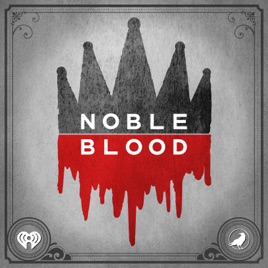
4.7
12815
176
Noble Blood
iHeartPodcasts and Grim & Mild

4.7
3428
600
Hillbilly Horror Stories Paranormal Podcast
Jerry & Tracy Paulley, Kentucky, Florida, Paranormal, Scary, Ghosts, Horror, Supernatural, Lore, Unexplained, Cryptids, UFO, Spooky, Bigfoot, Sasquatch

4.6
1457
680
History Daily
Airship | Noiser | Wondery
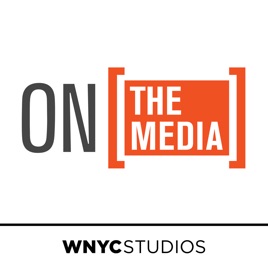
4.6
8233
121
On the Media
WNYC Studios

4.2
3271
775
Real Ghost Stories Online
Real Ghost Stories Online | Paranormal, Supernatural & Horror Radio
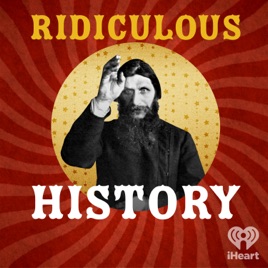
4.2
4102
685
Ridiculous History
iHeartPodcasts

4.9
363
34
Headwaters
Glacier National Park - National Park Service
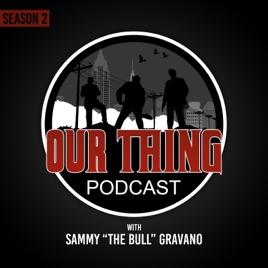
4.9
4264
91
Our Thing with Sammy The Bull
Sammy "The Bull" Gravano

4.5
81
300
Rock N Roll Bedtime Stories
Story Guys Productions
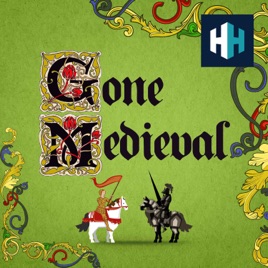
4.7
1118
293
Gone Medieval
History Hit



